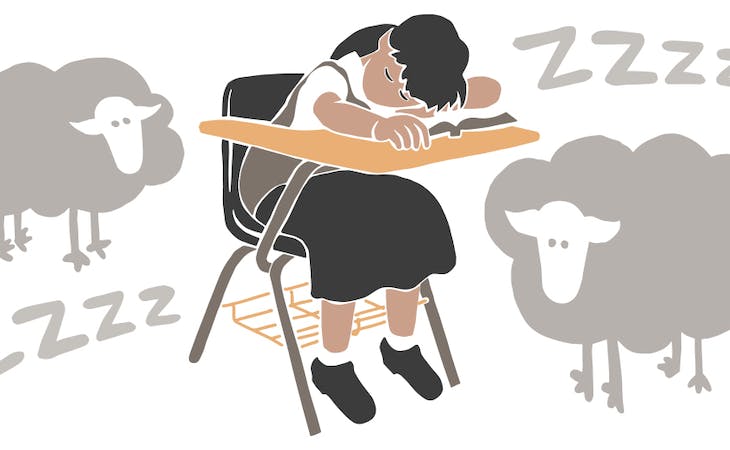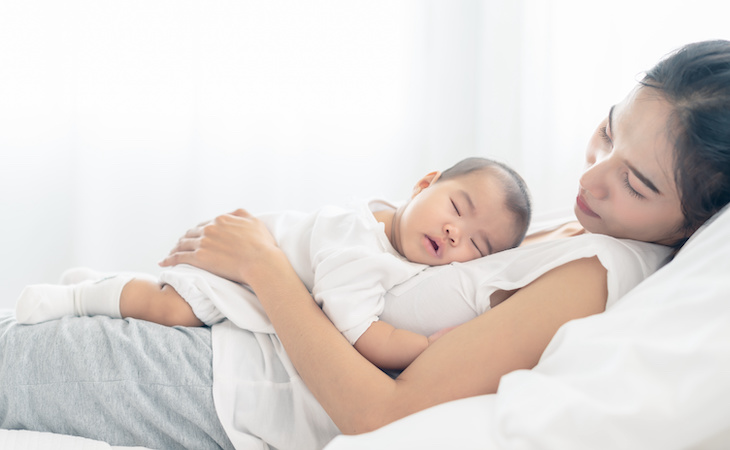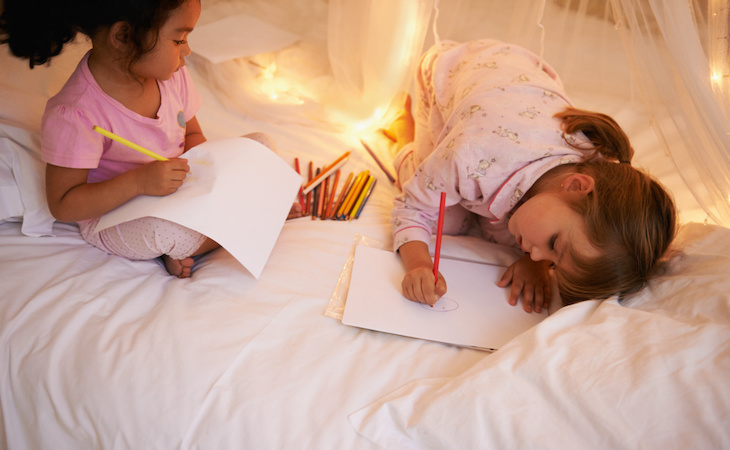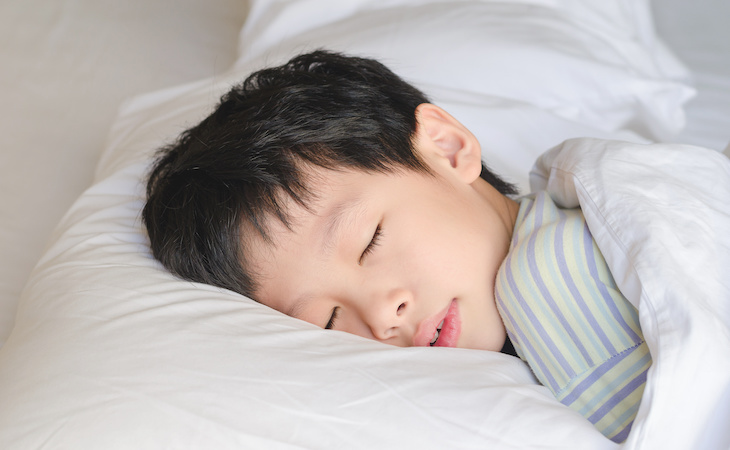For the past few months, I’ve been writing about the health risks of sleep deprivation in children and adolescents. If you haven’t been following my posts, here’s a quick recap of why I think this topic is so important.
The effects of sleep deprivation in children
For starters, there is ample research linking behavior and attention problems in children to poor sleep quantity and quality. Inadequate sleep contributes to attention problems, hyperactivity, bullying and aggressive behavior, mood swings, and anxiety. One study of children ages 10-14 found that higher cognitive functions (abstract thinking, verbal creativity) are impaired after a just single night of restricted sleep.
There are other health risks: In 2017, a study found that inadequate sleep was a contributor to type 2 diabetes in children and adolescents, while other research points to insufficient nighttime sleep among infants and preschoolers as a risk factor for subsequent obesity. Poor sleep quality is associated with hypertension in adolescents and is a risk factor for depression in children. Sleep disturbance is also a potential risk factor for increased injuries in children ages 3-7.
And children don’t always “grow out of it.” Recent research has even demonstrated that poor sleep patterns early in life can cause a host of problems in adulthood.
How much sleep should children get?
So now that we’ve established the importance of sleep for kids and teens, you might be wondering: How much sleep is enough? The American Academy of Sleep Medicine recommends the following amounts per 24-hour period:
- Infants 4 to 12 months: 12 to 16 hours (including naps)
- Children 1 to 2 years: 11 to 14 hours (including naps)
- Children 3 to 5 years: 10 to 13 hours (including naps)
- Children 6 to 12 years: 9 to 12 hours
- Teenagers 13 to 18 years: 8 to 10 hours
By some estimates, as many as 73% of middle and high school students don’t get adequate sleep. The National Sleep Foundation notes that as many as 25% of normally developing children and 30% of normally developing adolescents are not getting enough sleep on a consistent basis. In a survey of children in kindergarten through fourth grade, teachers reported that about 10% of the kids were falling asleep in school.
Why children don’t get enough sleep
We can point to plenty of reasons why too many children are not getting the sleep their bodies and minds require, including suboptimal sleeping conditions (crisis, homelessness, foster care, domestic violence), transition (moving, divorce), undiagnosed and untreated sleep disorders, early school start times, excessive homework, social activities, employment, poor sleep environments (noise, light, bedding), and electronics/screen time.
Add to that another major factor: a lack of awareness and education. Without knowledge of what good sleep habits look like—and the potential consequences of not getting enough sleep, especially for young people—it can be hard for parents and children to make sleep a priority. As a result, the signs of sleep deprivation often go unnoticed or get chalked up to something else.
How to spot sleep deprivation in children
Well-rested children are easy to spot: They are bright, energetic, upbeat, and inquisitive; they get along with their peers, are motivated, have healthy appetites, and readily engage in physical activity; and they enjoy school, are resilient, and are able to focus.
Conversely, sleep deprivation in a child can be obvious or not so obvious. Warning signs go beyond mere yawning, eye rubbing, and head nodding. Some signs of sleep deprivation in children include but are not limited to:
- being slow to wake up in the morning
- hyperactivity
- clumsiness, lack of coordination, accident-proneness
- short attention span
- decreased motivation
- frequent colds and infections
- anxiety, depression
- disruptive behavior
- memory problems
- relationship problems
- aggression, temper tantrums
- frequently falling asleep in the car
- falling asleep during the day (excluding naps)
- frequent waking in the night
- “crashing” prior to bedtime
- crankiness, irritability, moodiness
- disruptive behavior
- low frustration tolerance
The same is true of adolescents, with the added challenge that they are dealing with a biologically based phase delay, which shifts the time a teen feels sleepy to later in the night. Combined with school start times that are earlier than medically recommended, schoolwork, extracurricular activities, part-time jobs, and social lives, teens face serious repercussions from insufficient sleep. As sleep-deprived new drivers, they are at a high risk for car crashes, substance abuse, depression, and even suicide.
Here are some other signs of insufficient sleep in teens:
- chronic tardiness for school
- trouble concentrating
- lack of motivation
- impulsivity
- inadvertent daytime sleeping
- academic troubles
- excessive weekend sleeping
- consumption of excessive amounts of caffeine, energy drinks, and other stimulants
- drug/alcohol abuse
Could your child have a sleep disorder?
Similar to adults, children can and do suffer from sleep disorders. Some common, treatable medical sleep disorders that occur in childhood include insomnia, sleep apnea, restless legs syndrome, narcolepsy, central hypersomnia, Kleine-Levin Syndrome, parasomnias, or circadian rhythm disorders. Early diagnosis and treatment of sleep issues are important for long-term physical and mental health, as well as quality of life.
Signs of sleep disorders in children may include but are not limited to:
- snoring
- breathing pauses during sleep
- difficulty falling asleep
- problems with sleeping through the night
- bedwetting
- frequent nighttime awakenings
- morning headaches
- urge to move legs or other limbs/uncomfortable or painful sensations prompting leg or other limb movement (usually at night)
- unexplained decrease in daytime performance
- unusual events during sleep, such as sleepwalking or nightmares
If you think your child might have a medical problem that is causing sleep disruption and sleep deprivation, it is important to discuss the signs and symptoms with a healthcare provider or sleep physician.
Sleep deprivation doesn’t have to rob children of their potential. Increased knowledge on the part of parents and children, and a family commitment to prioritize sleep, is a great way to start.
Next, here’s how bullying can affect your child’s sleep.









